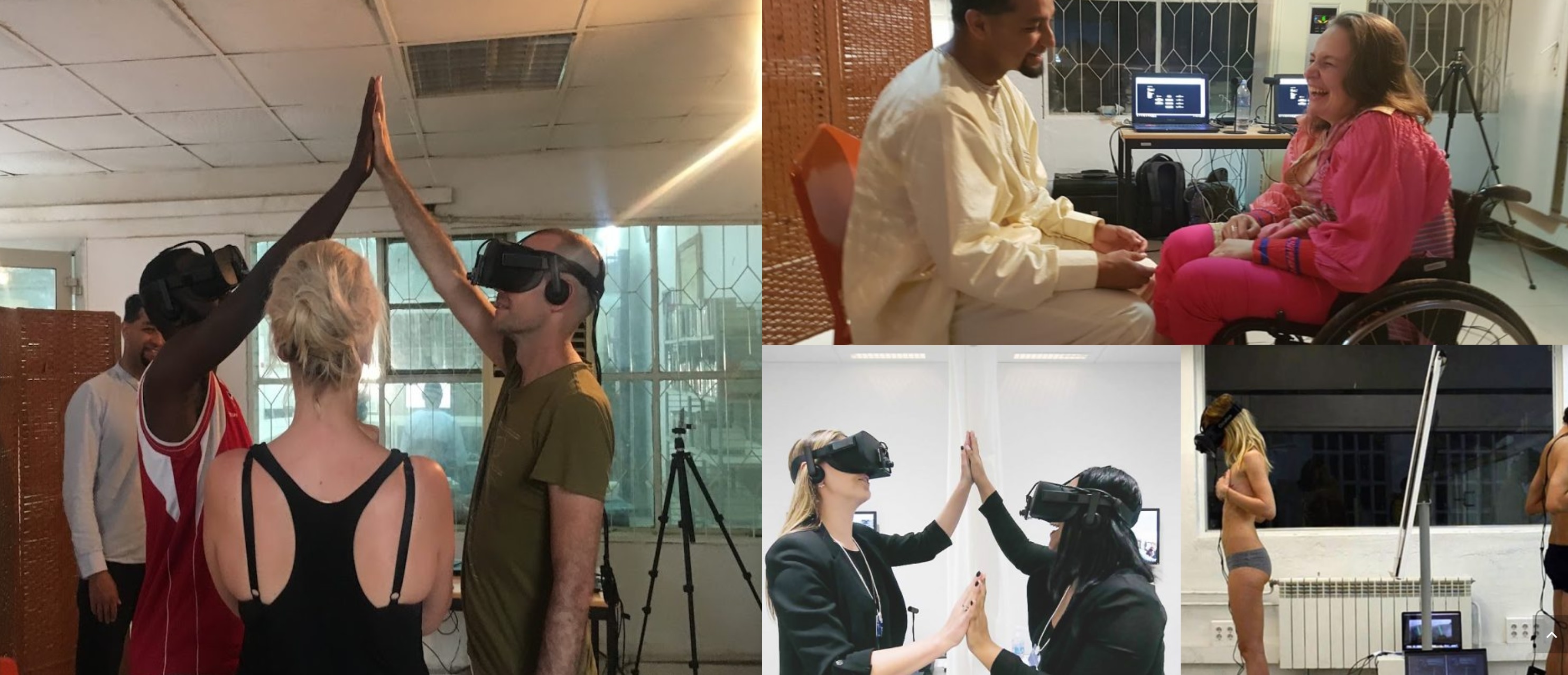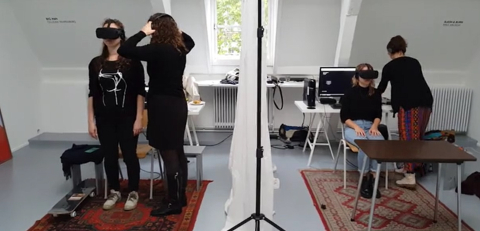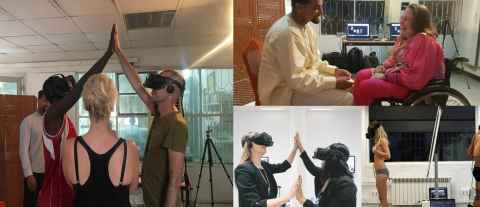BeAnotherLab

Works
Gender Swap
Experiment with The Machine to Be AnotherGender Swap is an experiment that uses themachinetobeanother.org/ system as a platform for embodiment experience (a neuroscience technique in which users can feel themselves like if they were in a different body). In order to create the brain ilusion they use the immersive Head Mounted Display Oculus Rift, and first-person cameras. To create this perception, both users have to synchronize their movements. If one does not correspond to the movement of the other, the embodiment experience does not work. It means that both users have to constantly agree on every movement they make. Through out this experiment, they aim to investigate issues like Gender Identity, Queer Theory, feminist technoscience, Intimacy and Mutual Respect.
Acknowledgement to: SPECS (Synthetic, Perceptive, Emotive and Cognitive Systems Group) Pompeu Fabra University, Master of Digital Arts Pompeu Fabra...
Read moreGender Swap
Experiment with The Machine to Be AnotherGender Swap is an experiment that uses themachinetobeanother.org/ system as a platform for embodiment experience (a neuroscience technique in which users can feel themselves like if they were in a different body). In order to create the brain ilusion they use the immersive Head Mounted Display Oculus Rift, and first-person cameras. To create this perception, both users have to synchronize their movements. If one does not correspond to the movement of the other, the embodiment experience does not work. It means that both users have to constantly agree on every movement they make. Through out this experiment, they aim to investigate issues like Gender Identity, Queer Theory, feminist technoscience, Intimacy and Mutual Respect.
Acknowledgement to: SPECS (Synthetic, Perceptive, Emotive and Cognitive Systems Group) Pompeu Fabra University, Master of Digital Arts Pompeu Fabra...
Read more
